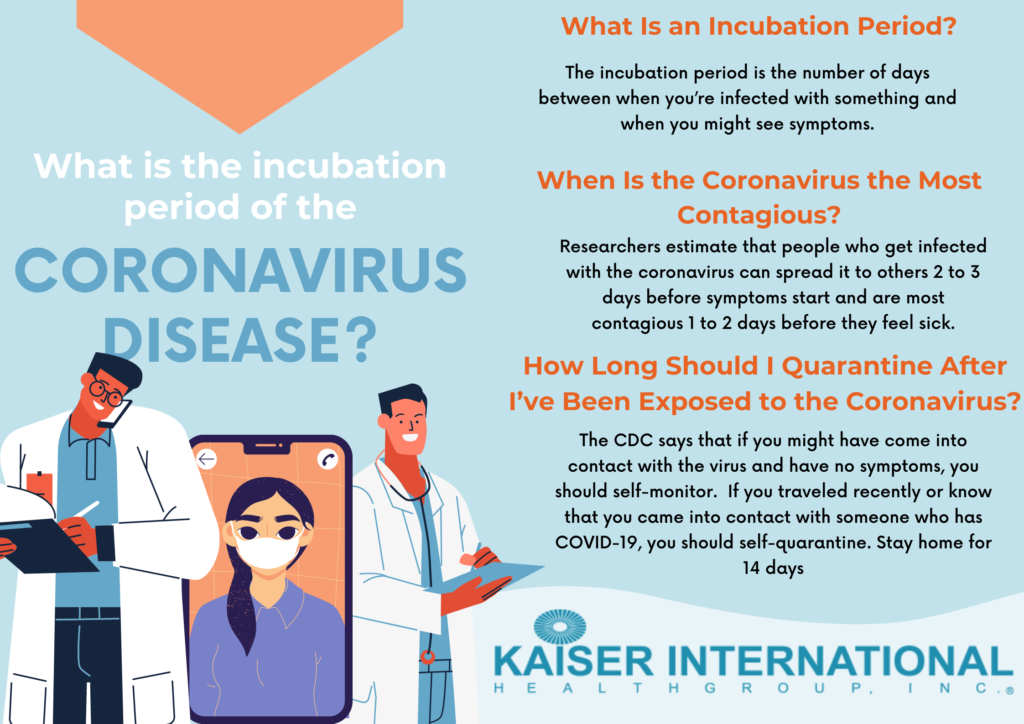To learn the incubation period for the coronavirus, researchers studied dozens of confirmed cases of COVID-19 reported between Jan. 4 and Feb. 24, 2020. These cases included only people who knew that they’d been around someone who was sick.
On average, symptoms showed up in the newly infected person about 5 days after contact. Rarely, symptoms appeared as soon as 2 days after exposure. Most people with symptoms had them by day 12. And most of the other ill people were sick by day 14. In rare cases, symptoms can show up after 14 days. Researchers think this happens with about 1 out of every 100 people.
Some people may have the coronavirus and never show symptoms. Others may not know that they have it because their symptoms are very mild. Current studies might not include the mildest cases, and the incubation period could be different for these.
What Is an Incubation Period?
The incubation period is the number of days between when you’re infected with something and when you might see symptoms. Health care professionals and government officials use this number to decide how long people need to stay away from others during an outbreak. It’s different for every condition.
If you’ve been around someone who has the new coronavirus that causes COVID-19, you’re at risk, too. That means you need to stay home until you know you’re in the clear. Health professionals call this self-quarantine. But when will you know whether you have the disease? The answer depends on the incubation period.
When Is the Coronavirus the Most Contagious?
Researchers estimate that people who get infected with the coronavirus can spread it to others 2 to 3 days before symptoms start and are most contagious 1 to 2 days before they feel sick.
How Long Should I Quarantine After I’ve Been Exposed to the Coronavirus?
The CDC says that if you might have come into contact with the virus and have no symptoms, you should self-monitor. This means watching for signs such as fever, cough, and shortness of breath. Stay out of crowded places, keep at least 6 feet away from other people, and wear a cloth face mask when you have to go out.
If you traveled recently or know that you came into contact with someone who has COVID-19, you should self-quarantine. Stay home for 14 days. It’s very rare for symptoms to show up after that much time. Check your temperature twice a day, and watch for other symptoms. Stay away from other people, especially those who are at high risk of serious illness because of their age or another medical condition.
Importance of knowing the incubation period
Understanding the incubation period is very important for health authorities as it allows them to introduce more effective quarantine systems for people suspected of carrying the virus, as a way of controlling and hopefully preventing the spread of the virus.
By now you should have understood what the incubation period is about. If you have flu-like symptoms. An amazing, trustworthy, and reputable health care provider out there right now is Kaiser International Health Group Inc. They can cater to your specific needs and they aim to establish a lifelong relationship with their clients to assure that they are in their best shape at all times. Get Kaiser Health Care today!
